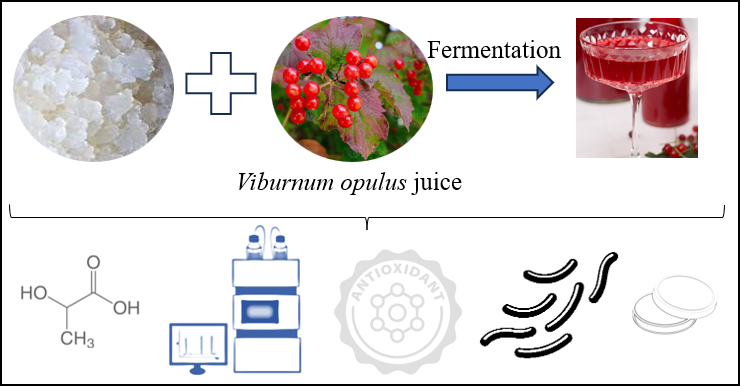JOURNAL 3155
Records of Agricultural and Food Chemistry
Year: 2024 Issue: 1 January-June
p.21 - 27
Viewed 1881 times.
GRAPHICAL ABSTRACT

ABSTRACT
Water kefir is produced by fermenting a plant-based carbon source with water kefir grains under favorable conditions. The resulting drink had unique sensorial properties, high antioxidant capacity, and probiotic microorganism content. In this study, water kefir grains were used for fermentation of nectar obtained from Viburnum opulus for 24 hours at 25°C. The study investigated the fermented beverage's organoleptic, physico-chemical, antioxidant capacity, and microbiological content. The results showed that the sensory evaluation of the water kefir beverage obtained by fermenting V. opulus was generally low, but the product's color and fermented odor were highly appreciated. Lactobacilli spp., Lactococci spp., and yeast counts were approximately 6 log cfu/mL after fermentation. Even though the total soluble solids amount value was as low as 1.0, the microbial development in the plant nectar was favorable. Following the fermentation, there was a significant increase in the concentrations of malonic acid, lactic acid, citric acid, and propionic acid (P<0.05). Our sample color had a slightly red-yellow mixture based on instrumental color analysis. The total antioxidant capacity was determined as 937 mg GAE/L based on the results of the antioxidant capacity analysis. The conclusion was that V. opulus is a suitable substrate for fermentation with water kefir grains despite the low overall sensorial evaluation of the product.
KEYWORDS- Antioxidant capacity
- fermentation
- Viburnum opulus
- water kefir